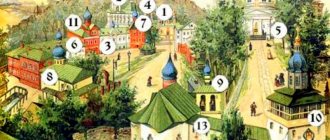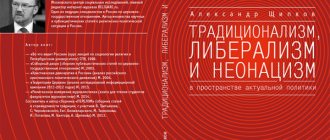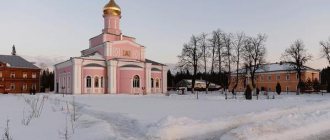How to get to a nunnery for accommodation
To become a nun, you need not only to go through a long and difficult spiritual path. There are also bureaucratic issues that are important for you to know about. Prepare documents in advance: you will need a passport, a text with your autobiography, a certificate of marital status and a statement addressed to the abbess of the monastery.
How to decide to live in a nunnery and what to do:
- First, think carefully: do you need this? The decision must be firm and not raise any doubts. This step will radically change your whole life. Life in a monastery is far from fun - you have to work hard physically, fast and fight any carnal desires. In return, you will receive a calm life without worldly worries, in purity, light and faith.
- If you clearly understand that you need this, talk to your priest. He will not only help you choose a monastery for you, but will also give advice on how to prepare for leaving worldly life.
- Take care to complete all worldly affairs: pay off debts, warn relatives and settle all legal issues with property.
- Next, you need to come to the abbess of the monastery in which you plan to serve. She will tell you about all the nuances - what you need to take with you and what you won’t need, for example.
- Upon arrival at the monastery, you will need to show all of the above documents and obtain the consent of the abbess. After this, you enter the service for a probationary period. On average it lasts three years, but can be completed earlier provided good service. Everything will depend on the opinion of the abbess about your readiness to become a nun.
- After this time, the abbess submits a request for tonsure to the bishop in your name, after which you can be awarded the title of nun.
Find out what awaits you today - Horoscope for today for all zodiac signs
Important: no contributions are required to join the service. Donations and charity are purely voluntary. If you sincerely want to help, then you can donate your funds to the monastery account.
It is equally important to understand in advance the real reason why you want to become a nun. If this is just an emotional impulse caused by a desire to escape from problems, it is better to wait for time so as not to regret it in the future. Your intention must be firm and final.
Portal "Wonderful Diveevo"
St. Nicholas Convent was founded by Decree of His Holiness Patriarch of Moscow and All Rus' Alexy II in April 1998. In the center of the monastery is the Cathedral of St. Nicholas the Wonderworker, which was built in 1779. This is a magnificent structure, which has no equal in its beauty in the area. The bell tower, made of tents and 25 fathoms high, was visible for tens of kilometers.
In October 1939, after the end of the celebration of the Patronal Feast - the Intercession of the Most Holy Theotokos (side chapel), the temple was closed, the bells were thrown down, the icons were burned, the clergy were repressed. The temple was turned into a warehouse for many years, and local authorities were not going to give it back to the Orthodox people, despite numerous requests. But the Lord decreed otherwise. In May 1989, on the day of remembrance of St. Nicholas, ball lightning struck the bell tower and it collapsed, destroying the vaults of the temple. The warehouse was urgently evacuated, the remains of the temple were transferred to the Church. In the fall of 1989, on the day of the Patronal Feast of the Intercession of the Most Holy Theotokos, exactly 50 years later, services were resumed in the church, and the first Divine Liturgy was served.
We believe that the Protection of the Mother of God, the prayerful help of St. Nicholas the Wonderworker and the New Martyrs of Russia saved this cathedral from final ruin and helped to recreate it. In 2000, thanks to the support of Moscow benefactors, the restoration of an exact copy of the bell tower was completed.
Next to the monastery there is a holy spring, which flowed at the site of the appearance of the Tikhvin Icon of the Mother of God. Before the revolution, a chapel was erected on this site, which was subsequently blown up, but by the grace of God the source still flows. The flow of people to this source for Holy water, which has healing properties, does not dry out. But it is especially crowded on July 9, when the Church celebrates the Tikhvin Icon of the Mother of God. On this day, Archbishop Ambrose of Ivanovo-Voznesensk and Kineshma, co-served by numerous clergy, performs a divine service with a procession to the Holy Spring.
In 1997, an Orthodox women's gymnasium and shelter was founded in the city of Privolzhsk, Ivanovo region. The gymnasium began its activities by obtaining a License for educational activities from the Regional Department of Education. From the first year of its operation, the gymnasium was focused on helping children from low-income, large and dysfunctional families, taking into account, already at that time, general unemployment and the drunken lifestyle of adults. In 1997, education began with one first grade, and every year the number of students grew, enrolling the first grade every fall. With each subsequent intake, among the incoming children, children were identified who were unable to live at home with their parents.
As a rule, the district guardianship authorities, or simply neighbors from the street, petitioned for these children. Currently, 57 girls from 6 to 14 years old are receiving training and education at the Orthodox Girls' Gymnasium, the oldest are studying in the 7th grade, and next year there will be an 8th grade. 20 children live in the shelter at the monastery, the youngest are 3 years old; the monastery supports 2 disabled girls from the Moscow and Smolensk regions.
All children studying in the gymnasium receive complete knowledge in all basic and additional subjects, as in a comprehensive school, but with the addition of church disciplines: the Law of God, Church History, choral singing and handicrafts. In December 2002, the gymnasium successfully passed Certification and Accreditation, thereby confirming that the education there complies with the Educational Standards of the Russian Federation.
The gymnasium and the orphanage operate exclusively at the expense of the monastery and benefactors. Funds are distributed according to such items as: salaries of teachers, food for children, provision of educational aids and stationery.
Our monastery is still very young, founded by decree of His Holiness Patriarch Alexy II in April 1998. And of course, the senior students of the gymnasium and the orphanage assist the sisters of the monastery in collecting and preparing medicinal raw materials. So, for example, on the lands of the monastery farmstead, sisters and children in 2003 grew and prepared 1.5 tons of dry medicinal calendula, 300 kg of tansy and 100 kg of St. John's wort were collected from wild ones. The harvested raw materials were delivered to the pharmaceutical factory in the city of Ivanovo and to the All-Russian Institute of Medicinal Plants in Moscow, with which contracts were concluded for the supply of medicinal raw materials.
It so happened that the gymnasium, growing every year, already completely occupies the monastery building (a hardware store near the church was purchased in 1996), which is equipped with small classrooms, a library, and a medical office. But this building is not enough, and now the problem with the further placement of classes has become acute. Several years ago we decided, with God's help, to begin construction of an additional building for a gymnasium and an orphanage. Today, all the design and estimate documentation is available, the foundation has been completely laid, but even this is not enough to even begin construction, since there are no building materials and no funds to pay for construction work. The new building according to the project accommodates a gym, a large dining room, and specialized classrooms (physics, chemistry, labor).
On November 4, 2003, on the occasion of the celebration of the Kazan Icon of the Mother of God, a prayer service was held in the monastery with a procession of the Cross, which passed along the perimeter of the foundation of the future building.
The sisters of the monastery cordially ask those who are able to provide all possible assistance in the construction of the gymnasium, the estimated cost of which today is 6 million rubles.
As it was said earlier, the monastery is very young, the big difficulty now is that there was no monastery in this place in the city, and therefore there are no church buildings and very little land, so a lot has to be built from scratch, as well as major repairs in existing buildings. Geographical conditions favor the successful construction of the fence and monastery territory. But all this is possible only after purchasing several private houses adjacent to the temple and gymnasium. We all prayerfully hope that those who have the opportunity to help will support the tradition of the nation-wide construction of the monastery - the spiritual center of the city. We will sincerely welcome everyone who wants to visit our monastery, the Church of St. Nicholas built in 1779, the gymnasium and the orphanage. Our details: account 40703810017070157498 dept. Ivanovo OSB? 8639 Ivanovo INN 3719004673 KPP 371901001 BIC 042406608 account 30101810000000000608 recipient St. Nicholas Convent, with the note: charitable assistance for the shelter, VAT exempt. With sincere best wishes for your work. The abbess of the monastery is nun Eugenia. Moscow Patriarchate, Ivanovo-Voznesensk and Kineshma diocese St. Nicholas Convent 155550, Russian Federation, Ivanovo region, Privolzhsk, 2nd Ovrazhny lane, 2 Telephone (093-39) 3-15-29, 3- 20-99, fax 3-19-72
Life in the monastery
You should have a good idea of how unpretentious monastic life is like and what you need to be prepared for.
Due to numerous requests from readers, we have prepared an “Orthodox Calendar” application for smartphones. Every morning you will receive information about the current day: holidays, fasts, days of remembrance, prayers, parables. Download for free: Orthodox Calendar 2021 (available on Android)
The life of nuns is regulated and follows a strict schedule. The rules are set by the Russian Orthodox Church. For a worldly person, this is something completely incomprehensible and unfamiliar, because no one talks about it openly.
The routine of monastic life is subject to the circles of worship. At five o'clock in the morning you need to be at the morning service; you cannot refuse to attend it. One of the nuns strictly monitors the presence of Fr.
After the morning service it is time for breakfast. Immediately after it, around noon, is labor time. What a particular nun will do depends on her skills and abilities. Those who do not have useful skills engage in hard physical labor. The “chosen ones” serve in accounting, archives and are engaged in other intellectual work.
There is a short break during the day for lunch and then everyone gets back to work. At five in the evening there will be an evening liturgy, followed by dinner and a short personal time for communication.
Lights out no later than 23:00, which is strictly checked. Practice shows that nuns have no desire to stay up all night, because they get tired during the day, and they have to get up at 4-5 in the morning. No concessions or deviations from the rules are made for anyone.
You cannot leave the monastery without the permission and blessing of the abbess. There is no Internet, no TV, alcohol is also prohibited.
Watch a video about how to enter a monastery:
Is a monk someone who only does what he doesn’t want to do?
When people ask me questions about monasticism, I say that everyone has their own path, but first of all, a monk is the happiest person. He should always be joyful, because monasticism is the combination of what a person wanted and was looking for - and what the Lord gave him. It seems to me that this alone should make us happy, because we are doing what we dreamed of.
We, monastic people, sometimes make many mistakes - in our relationships with the world and among ourselves. Probably, people sometimes see us sad, sad, tired, and so they get the impression that our path is imposed. However, a question in this regard can be asked not only to us, but also to those church people who want to come into contact with life in a monastery. These people are different and are looking for different things. Some people want live communication, something joyful and active. Another category is those who want to live in silence and solitude. Therefore, the monasteries are located in different places: some in the outback, where you can’t get to, you can’t get there - it’s quiet there, but in the cities there is a constant flow of people, visitors, pilgrims - life there is completely different.
People notice everything: a look, a word, a mood. In the monastery, everyone wants to be treated with kindness and warmth. But a monk is also a living person, he may have problems with his health or in his relationship with his brother - and that’s it, there is some kind of imbalance that leads to conflict. The abbot of the monastery must remember all this. In my opinion, the only way to overcome misunderstanding is to talk about everything, ask, listen. Unfortunately, the problem of relationships on an ordinary human level is very relevant.
Some people come to heal some of their sins in the monastery. Here it is important to ask yourself the question: do I want to have something - or do I want to be someone? In our society it turns out like this: “I want to have a good wife!” - but are you ready to be a good husband? I want me to have good sisters - obedient, meek, hardworking, merciful, joyful. But am I ready to be a good mother for them, an abbess? Unfortunately, most often everyone wants to have something towards themselves: respect, love, mercy - but not everyone wants to be the person who can first give all this to someone.
How can a man enter a monastery?
If a man realizes that he wants to devote his life to serving God and renounce worldly concerns, he must go through several stages.
How to get to the monastery in this case:
- First of all, a blessing is required. From the outside, it may seem to people that his desire is caused by an escape from reality, a lack of goals and aspirations. If this is really the case, the priest may refuse. Therefore, the priest will look closely at the future monk for a long time to make sure that the decision is correct. After the blessing, the man receives novice status and can move on to the next step. It is important to come to terms with any decision, even if it is negative.
- Next, the novice begins to serve in the monastery to which his spiritual mentor assigns him. First you need to talk to the abbot and get his permission. During novitiate, a man lives in a monastery and undergoes tests through fasting, hard work, and daily prayers. He also studies the Bible and understands other religious aspects. The period of novitiate is not quick - it can last from five to ten years. During this period, a man is free to change his decision and return to ordinary worldly life.
- Having completed the novitiate, a man undergoes the rite of tonsure - only after this he is considered ordained a monk. tonsure is a symbolic ritual and a sign that from this moment a person devotes himself entirely to serving God.
Of course, a man must understand all the responsibility and all the difficulties that lie ahead. Once he becomes a monk, there is no turning back. Therefore, you need to think carefully before deciding to change your life so radically.
We need to move on with our lives
In defense of the monastics, I will say: we must say a huge thank you to them for praying. Prayer is also a lot of work. Each of the nuns of our monastery has a very difficult path, and what may be unpleasant for many is due to a difficult life. If you try to understand a person, you can avoid many problems and grievances.
Unfortunately, our continuity in monasticism has been interrupted. The revolution of 1917 claimed so many lives of monks who passed on their experience that much was simply lost. To become a good doctor, you need to meet a good doctor; to want to become a worthy priest, you need to see the work of a sincere, worthy shepherd. You need an example of a good specialist to want to become like him. Monks are no exception; continuity and living experience are also important to us. In life, it happens that people grab hold of what they read and engage in spiritual self-medication, but this is not true.
However, this is not a reason to go to another extreme - fold your hands and do nothing. The Lord preserved our Church; it went through the crucible of suffering. We have worthy bishops and wonderful priests. Temples are erected, monasteries are restored and built, people fill them. The Church lives and will live by the grace of God. In order to preserve it, we need to love, have obedience, mutual understanding, respect. We must learn to be human, forgive and take care of each other. And most importantly, we must thank God for the love that He gives us, for life and the beauty that fills it.
Interviewed by Ekaterina Shcherbakova
Rules for workers
The following rules must be strictly observed by all employees. A worker who grossly violates the rules of behavior or internal regulations, as well as negatively influencing the general atmosphere, will be forced to leave the monastery within 24 hours. If persons who violated these rules disobeyed and did not leave the monastery within 24 hours, the police are involved in influencing them.
- Not blessed and forbidden:
- any type of violence or bullying, both physical and verbal;
- Rudeness and use of obscene language are unacceptable;
- use of any kind of narcotic drugs and other chemical substances, mixtures and medications that cause hallucinations, stupefaction and disorientation;
- drinking wine (even any alcoholic drinks);
- smoking, on the territory of the monastery;
- store any, including legally registered, cold steel and/or firearms (during your stay in the monastery, weapons must be deposited at the police station), including explosives and substances;
- move furniture or any things belonging to the monastery from room to room or even remove them from the building, without the specific blessing of the dean of the monastery. Handle any property of the monastery with care. Compensation for damage caused to the monastery is recovered from the worker who caused it;
- strong screams that disturb the atmosphere of calm and tranquility for the remaining inhabitants of the monastery (even during obedience);
- leaving the monastery without blessing;
- promote other beliefs or any deviations from Orthodoxy;
- Village residents are prohibited from entering the monastery premises without the blessing of the dean.
- Strictly follow the instructions of the “senior over the workers” assigned to this obedience by the dean of the monastery.
- Accurately observe the daily routine for workers, participate in the spiritual life of the monastery:
- attend festive all-night vigils, Divine Liturgy on Sunday, as well as on major holidays;
- attend the daily morning rule and prayer service of St. Alexander Svirsky (starts at 6:00, on Saturday - 7:00);
- regularly confess and receive communion (mandatory general confession - every Saturday at 16:30).
- If a problematic situation arises, you must immediately notify the dean of the monastery.
- When leaving the monastery, it is necessary to hand over the bed linen to the handkerchief, the tools to the senior worker, and the keys to the cell to the dean.
We hope that the listed restrictions will not affect your peace of mind, but, on the contrary, will help in achieving the goal to which this Holy Place obliges us.











